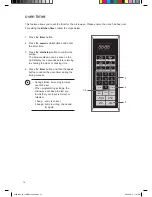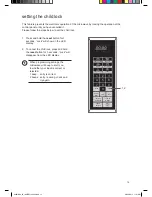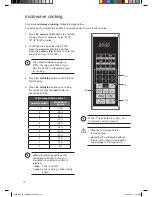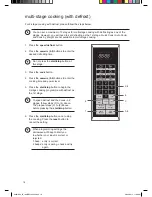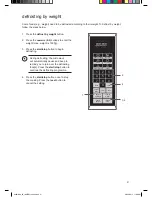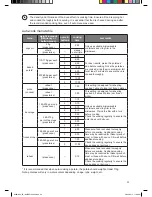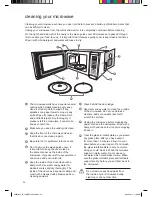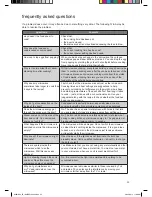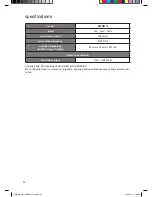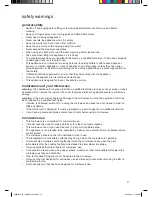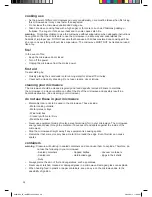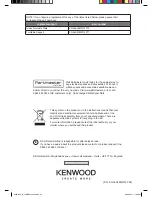
28
cooking use
• As the power of different microwaves can vary considerably, care must be taken when first using
this microwave as it may cook faster than expected.
• Do not leave the microwave unattended during use.
• Take care when cooking food with a high sugar or fat content, such as Christmas pudding or
fruitcake. The sugar or fat can overheat and in some cases catch fire.
warning
: Only allow children to use the microwave without supervision when adequate instructions
have given so that the child is able to use the microwave in a safe way and understands the
hazards of improper use; DO NOT assume that because a child has mastered one cooking skill he/
she can cook everything without close supervision. The microwave MUST NOT be treated nor used
like a toy.
fire!
In the event of fire:
• Keep the microwave door closed.
• Turn off the power.
• Unplug the microwave from the mains power.
first aid
Treat scalding by:
• Quickly placing the scald under cold running water for at least 10 minutes.
• Cover with a clean dry dressing. Do not use creams, oils or lotions.
cleaning your microwave
The microwave should be cleaned regularly and food deposits removed. Failure to maintain
the microwave in a clean condition can affect the life of the microwave and possibly result in a
hazardous situation. (See cleaning your microwave.)
do not use these in your microwave
• Metal objects are not to be used in the microwave. These include:
- Metal cooking utensils.
- Metal plates or trays
- Wine twist ties
- Crockery with metal trims
- Meat thermometer
• Never use equipment made of metal, except aluminium foil in your microwave. The microwave
energy cannot pass through the metal so it bounces off and sparks against the inside of the
microwave.
• Stop the microwave straight away if any equipment is causing sparks.
• Remember that some crockery has a metal trim around the edge. Even this trim can cause
sparks.
containers
warning
: Pressure will build up in sealed containers and can cause them to explode. Therefore, do
not use the following in your microwave:
- Sealed containers
- Capped bottles
- Vacuum containers
- Sealed jars
- Hard-boiled eggs
- Eggs in their shells
- Nuts
• Always pierce the skin of fruit and vegetables, such as potatoes.
• Never use scratched, cracked or damaged glass in a microwave. Damaged glass can explode.
• When heating food in plastic or paper containers, keep an eye on the microwave due to the
possibility of ignition.
K25MW12_IB_final�RC120530.indd 28
30/05/2012 11:38 AM

